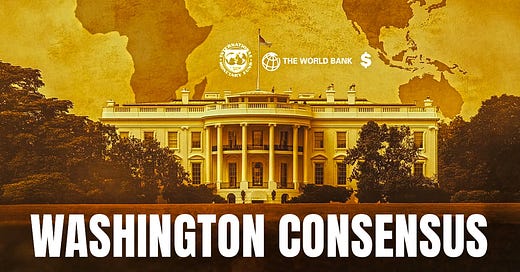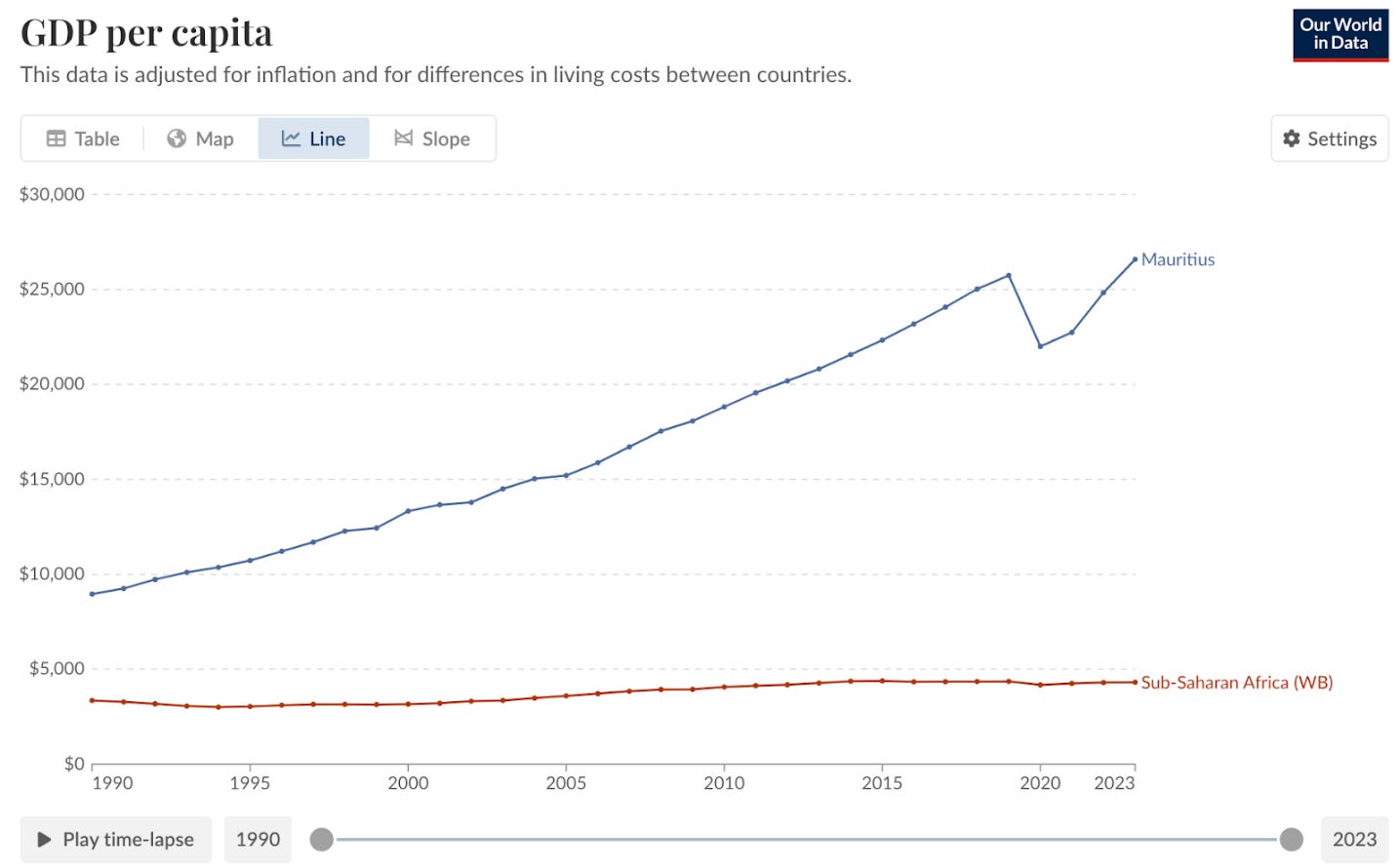Prescript: for the full experience, this is the song I was listening to while writing this.
Many people claim that free markets failed in Africa because the economic reforms of the 1980s and 90s – known as the "Washington Consensus" – didn't immediately create prosperity. This story gets repeated so often that most people believe it. But like many things people "know" about Africa, it's not quite right.
Let me break this down for you.
In the 1980s, most African nations were drowning in debt and inflation after decades of socialist policies. The International Monetary Fund (IMF) and World Bank stepped in with a package of reforms focused on reducing government spending, controlling inflation, and opening up trade.
The results? In the short term, it hurt.
A lot.
Why? Because imagine you've been spending money you don't have for years. When the credit card finally maxes out, you have to cut back. It's painful. That's what happened to African nations – they had to implement tough austerity measures.
Unfortunately, many leaders chose to cut education and healthcare rather than reducing military spending or ending subsidies to state-owned companies.
Then they blamed all the pain on "free markets" rather than their own choices.
But here's where it gets interesting.
Recent research shows these reforms actually worked – just not right away. Easterly's 2019 analysis found that countries implementing serious market reforms did see significant improvements in growth rates compared to those that didn't reform. The benefits weren't immediate – they often took years to materialize – but the long-term impact was positive.
The problem wasn't that market reforms failed. The real issue was that these reforms focused only on macroeconomic policies (things like inflation and trade) while ignoring what I call the "entrepreneur’s toolkit" – property rights, rule of law, and the freedom to start and run businesses easily.
Think about it.
What good is free trade if you can't legally start a business? What good is low inflation if it takes 6 months and costs thousands of dollars to get basic permits?
This is why I keep hammering on the need for better business environments in Africa. Mauritius understood this. They not only controlled inflation and opened trade, but they also made it easy to start and run businesses.
Today they're approaching European levels of prosperity.
Rwanda's economic reforms are also worth examining, even though Kagame's regime is controversial for human rights issues. Setting aside these political concerns and looking purely at the business environment, Rwanda has relentlessly focused on making it easier to do business. The economic results speak for themselves — they're one of the fastest-growing economies in Africa despite being landlocked with few natural resources.
The lesson is clear.
Market reforms work, but only if you give entrepreneurs the tools they need to succeed. Half measures don't cut it. You need both macroeconomic stability AND a good business environment.
That's why when people tell me "free markets failed in Africa," I say: "We haven't tried them yet." Most African nations still rank at the bottom globally for ease of doing business.
We've barely scratched the surface of what real economic freedom could bring to Africa.
It's time to finish what we started in the 1980s. Not just control inflation and open trade, but create world-class business environments where African entrepreneurs can thrive.
That's how we'll finally achieve the prosperity our people deserve.
Cheetah’s Catch
These gold hairpins were crafted by Akan and Wolof artists from Ghana and Senegal in the late 19th and early 20th centuries. The attention to detail is incredible — a testament to the artistry of the time (Credits: Isaac Samuel)







On point.
People like to misrepresent Joseph Stiglitz' work to just rail against free markets when that wasn't really the point at all. He has a great paper comparing the transition to capitalism in China and Russia. The former's epic rise is well known. The latter was a sudden "shock therapy" without any methodical development of the institutions and culture of entrepreneurship. Well, since during Soviet times the only people experienced with markets were mobsters working in the black market, these mobsters became the titans of industry, the famed oligarchs.
Hernando de Soto's seminal works and the entirety of the 2024 Nobel Prize in Economics should have made it common knowledge, by this point, that "free markets" do not exist in a vacuum, but involve an intricate co-evolution of policy, legal and physical infrastructure, and culture, that is, institutions.
You are on point Magatte. Ease of business will en Africa and Africans prosper. On the other hand self love mentality is also a must to go with it. Businesses will generate prosperity, while the right mentality will make it truly last.